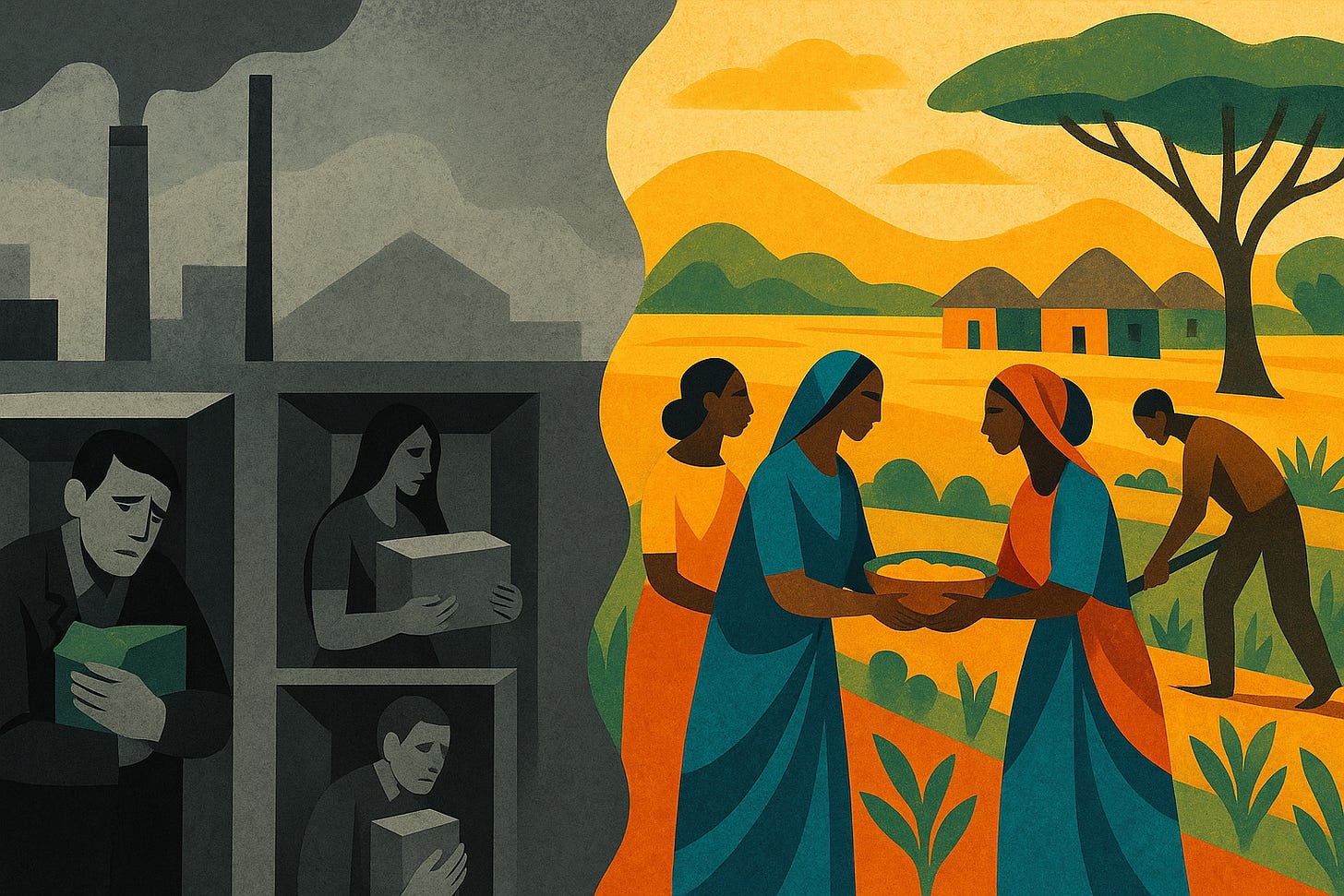Capitalism’s Dirty Secret: Born of Poverty, Not Prosperity
Rethinking prosperity through the eyes of the tropics
What if everything we’ve been told about capitalism was backwards?
We often hear that capitalism is a system born out of innovation, progress, and freedom. But what if, at its root, capitalism was actually born out of poverty? Not just material poverty, but a mentality shaped by scarcity, harsh climates, and the constant need to survive?
That flips the whole story, doesn’t it?
A System Shaped by Scarcity
Let’s rewind a few centuries. Europe, during its transition into the modern age, wasn’t exactly a paradise. Winters were long, food was often scarce, and natural resources were limited. People had to hoard, compete, and hustle just to get by. Over time, this survival instinct hardened into a cultural norm: own more, protect what’s yours, and never stop working.
Out of this pressure cooker came industrialization. Machines to work faster. Colonies to extract more. A system built on competition and accumulation. That system? Capitalism.
But what if this was never about progress? What if it was about coping?
Capitalism: A Mask for Poverty Mentality
Capitalism thrives on consumerism and materialism. Buy more, want more, never enough. But beneath the glossy ads and fast fashion is a mindset of lack—that there’s not enough to go around, so you’d better get yours before someone else does.
This mindset is what psychologists might call a poverty mentality: the belief that resources are scarce and only the strongest—or richest—will survive.
It’s no coincidence that colonialism, one of capitalism’s ugliest partners, was driven by the same hunger. European powers didn’t invade Africa and Asia because they had too much—they came because they lacked gold, spices, fertile land, and manpower. Colonization was capitalism’s great resource grab, justified by the same fear: not having enough.
A Different Story from the Tropics
Now contrast that with many indigenous and tropical societies. In much of pre-colonial Africa, for example, the climate was forgiving, the soil rich, and food relatively abundant. There wasn’t the same pressure to hoard or dominate.
Instead of individual ownership, there was communal stewardship. Land wasn’t bought and sold—it was shared and passed down. Wealth wasn’t displayed—it was redistributed through extended families and communal obligations. The economy wasn’t based on greed, but on reciprocity.
These societies didn’t lack economic logic—they had a different logic, rooted in abundance, not scarcity.
So What Now?
Recognizing capitalism’s roots in poverty mentality doesn’t mean rejecting everything about it. But it does mean questioning the values it promotes:
Must success always mean accumulation?
Is constant competition really the only way to thrive?
What would our world look like if we built economies around sharing, not scarcity?
The systems we create reflect the stories we believe. If we believe in scarcity, we’ll build systems that hoard, exploit, and isolate. If we believe in abundance, we’ll build systems that share, sustain, and connect.
So maybe it’s time to ask: What story are we living in—and is it the one we really want to tell?


